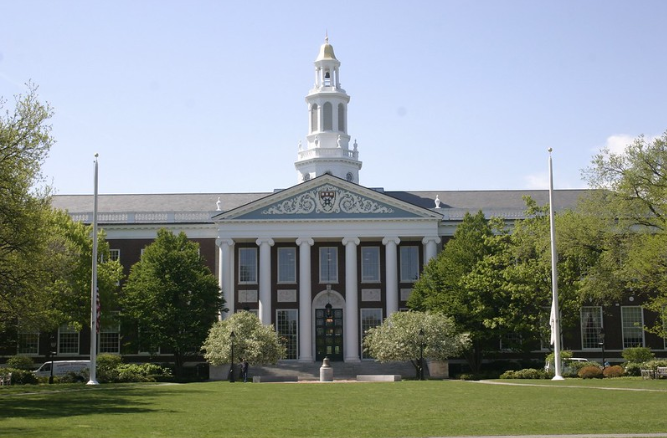How to apply to HBS as an Indian
/Hari is an admissions expert at Ivy Admissions Group. He attended graduate school at Stanford, Harvard Kennedy School and Harvard Business School despite despite not coming from a well known school in India and advises clients on how to do the same.
Over 9,000 people typically apply to Harvard Business School ever year, but only about 10% matriculate resulting in a class size of about 900 students. For Indian candidates, the situation is much more challenging. While Harvard Business School does not publish detailed incoming class details – it is known that Indians are one of the largest groups on campus with about 50 students every year. The South Asian Business Association is the hub of Indian activity on campus and the annual Bollywood night is something that the entire campus looks forward to.
It is reasonable to assume that there at least a few thousand applicants from India every year resulting in an acceptance rate of 1-3%. So, what makes that 1-3% of student so special? Based on our years of experience working with Indian candidates and several members of our team having gone to school there here are our thoughts.
Table Stakes to be Considered
It is clear from the HBS website and that there are some minimum table stakes you need to meet in order to gain admission
GPA/GMAT/GRE: How does the average GPA of 3.70 translate to an Indian context? There is no easy conversion mechanism and the admission committee understands an 80% from Mumbai University is much more challenging to achieve than an 80% from a less known university. IIT students that were admitted typically had a GPA of greater than 8.0 on a scale of 10. A large portion of the Indian students at Harvard went to college at prestigious institution such as IIT, BITS, NIT etc. However, there are also students who went to arts college and other not-so-well-known institutions. The median GMAT score for the class of 2021 is 730 and the median GRE verbal and quantitative scores are 163/163. However, this belies the fact that Indian students typically achieve higher scores on these standardized tests. 750 or 760 is a standard score that we come across for successful candidates
Work Experience: The average years of work experience is 4.7. This is true also for Indian candidates. Most Indian candidates that we have worked with have at least 3 to 4 years of experience at a minimum. It is also pertinent to note that students in India matriculate and complete college at an earlier age than American counterparts. We often hear enquiries from students who would like to apply after 1 or 2 years of experience. We strongly encourage you to wait for a few years to have a stronger profile before applying.
Previous Industry: HBS does not care which industry you came from pre-MBA. A disproportionately large portion of the Indian students at Harvard have an engineering background – and this is likely driven by the pool of applicants and not any choice the school makes. The previous employers of Indian students are from the usual well-known consulting, finance, banking and other leading blue-chip firms in India (ITC , Tata group etc.). Having said that the school does look for diversity and we see candidates who work in nontraditional industries also successful make it to Harvard.
But I was a gold-medalist at IIT, and I worked at BCG and Sequoia – why did I get rejected?
A quick perusal of MBA forums will reveal candidates from India posting their incredible stats and profiles – including their 800 GMAT score, along with their rejection results from Harvard.
What will put you over the top
Here is the truth – there are way more people who apply to schools like Harvard Business School and meet the minimum table stakes than there are spots. Especially for Indian candidates as we alluded to earlier the acceptance rates are likely 1-3%. What sets apart those who get accepted and those who do not?
One factor is of course standing out from the pool of candidates with a unique set of achievements in your chosen field or Industry. We have also historically seen candidates with less impressive stats but meaningful leadership experiences in uncommon fields make it to Harvard. But there is one other key ingredient we have seen that helps candidate stand out in the pool.
Ivy Admissions Group originally started out by helping Waitlist clients, and over the years we have had the opportunity to see hundreds of profiles that clearly meet the minimum table stakes, but were missing something to push them into the accepted zone. What we’ve been able to figure out is that special ingredient that moves the application from Waitlist -> Accepted. What is that special ingredient? Narrative. It’s a simple word, and quite frankly, a simple concept. But it is often misused, forgotten, or implemented haphazardly. A narrative is a story arc that connects your personal inspirations and motivations to your career aspirations. In the case of an MBA application, a personal narrative will inform the admissions committee how you ended up on your current life story arc, show where this arc will take you by projecting it into future, and then argue why business school is the logical next step in your career because it is the perfect bridge to connect the two. Why are you better positioned to use an HBS MBA to solve the world’s important challenges and another Indian candidate whose resume and profile look remarkably similar to yours?
It is crucial that your personal narrative be authentic and reflected in every component of your application, something that takes a lot of deep personal introspection and reflection. For many people, this is a struggle, and it can help to have an objective third-party work with you to try and distill your personal narratives. If this is something you might need help with, please feel free to reach out to discuss.
















